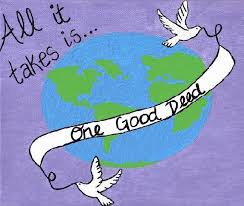Annie had been after me to write a guest post for years and I had always declined. She said we were “muddling through leukaemia” together. Which is true. But this blog was HERS. People wanted to hear from her; to get her wisdom; to be comforted by her words and insight; to be challenged about how they viewed the world. She taught us all so much about strength and courage, compassion and diversity, right and wrong, living and dying. She made us laugh and cry, sometimes in the same sentence.
Annie died in hospice yesterday morning. She wasn’t in pain and was comfortable right to the end. Despite her earlier misgivings about being in hospice, this time she knew it was where she needed to be. The amazing staff made her feel safe and eased her mind, which is the most precious gift, both of us could have received.
Over the past few weeks we had daily chats about her life and what her legacy would be. Her wondering wasn’t because of narcism. Rather it was because she wanted to know that she made a difference. That she helped people. It wasn’t about feeding her own ego. It was about her overwhelming desire to take care of people. She actually apologised last week for “abandoning her followers”. Yes, those were her words. A true caretaker of hearts and souls until the end.
In keeping with Annie’s strict rule of 500 words or less, I offer this as her legacy. She will be remembered for her kindness, warmth, and generosity, both of time and money. She had an amazing ability to make people feel important and that she was truly listening to them. Annie showed us how to touch people’s lives and to make the most of every day. She reminded us that life is short and precious. She exemplified the tenet “it’s better to give, than take”.
She had a brilliant mind and made people laugh, often and hard. She taught us to be honest but never mean or cruel. She was reliable and always put others before herself. She was a good friend. And a great baker. She set the bar on what it means to be a good person. She inspired us to be brave, strong, and kind.
Gone but never forgotten, I hope you will continue to be inspired by Annie’s legacy. I know she inspired me every day to be a better person. I hope you got as much from Annie’s blog as she did. Now that would make her smile.
Thank you for all your love and support these past 4 years.
xo J










